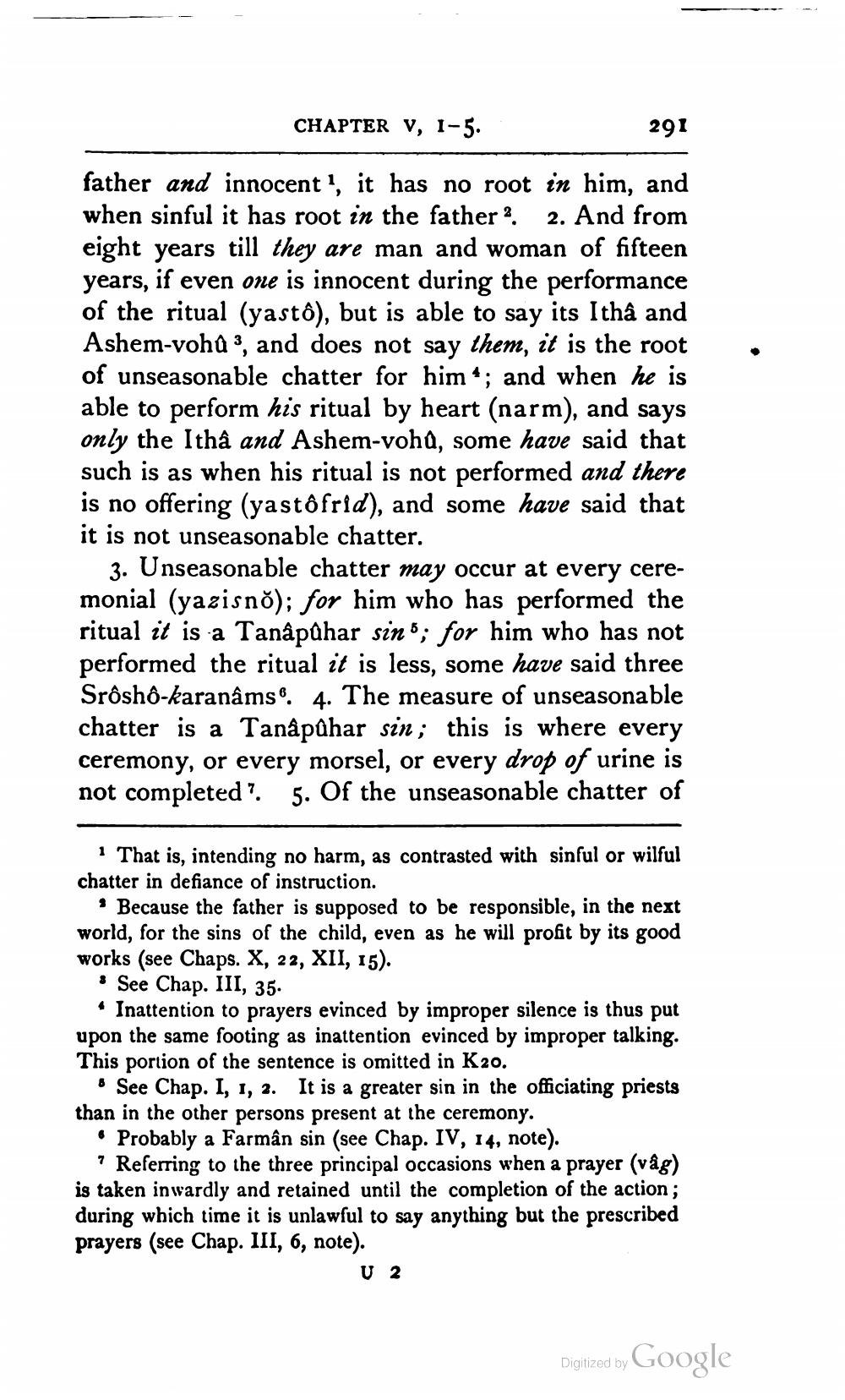________________
CHAPTER V, 1-5.
291
father and innocent, it has no root in him, and when sinful it has root in the father 2. 2. And from eight years till they are man and woman of fifteen years, if even one is innocent during the performance of the ritual (yasto), but is able to say its Itha and Ashem-vohů 3, and does not say them, it is the root of unseasonable chatter for him *; and when he is able to perform his ritual by heart (narm), and says only the Ithâ and Ashem-vohů, some have said that such is as when his ritual is not performed and there is no offering (yastôfrid), and some have said that it is not unseasonable chatter.
3. Unseasonable chatter may occur at every ceremonial (yazisno); for him who has performed the ritual it is a Tanapühar sino; for him who has not performed the ritual it is less, some have said three Srôshô-karanâms. 4. The measure of unseasonable chatter is a Tanâpühar sin ; this is where every ceremony, or every morsel, or every drop of urine is not completed? 5. Of the unseasonable chatter of
1 That is, intending no harm, as contrasted with sinful or wilful chatter in defiance of instruction.
· Because the father is supposed to be responsible, in the next world, for the sins of the child, even as he will profit by its good works (see Chaps. X, 22, XII, 15).
• See Chap. III, 35.
• Inattention to prayers evinced by improper silence is thus put upon the same footing as inattention evinced by improper talking. This portion of the sentence is omitted in K20.
See Chap. I, 1, 2. It is a greater sin in the officiating priests than in the other persons present at the ceremony.
• Probably a Farmân sin (see Chap. IV, 14, note).
? Referring to the three principal occasions when a prayer (våg) is taken inwardly and retained until the completion of the action; during which time it is unlawful to say anything but the prescribed prayers (see Chap. III, 6, note).
V 2
Digitized by
Digitized by Google




